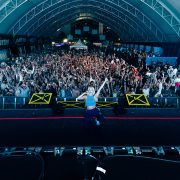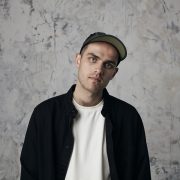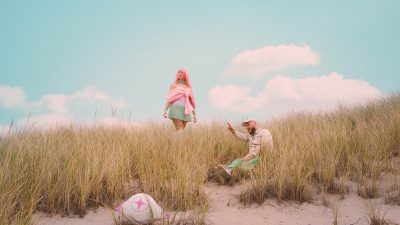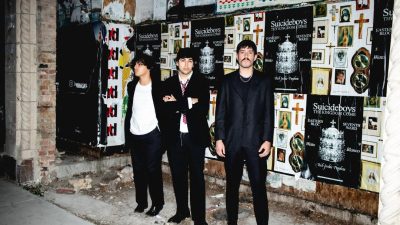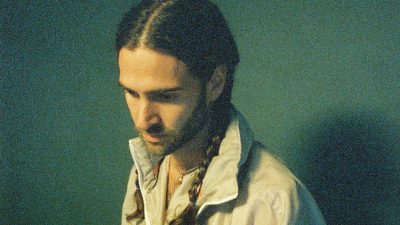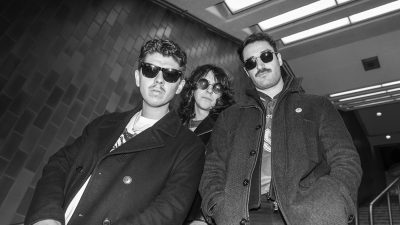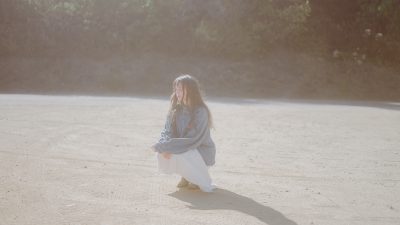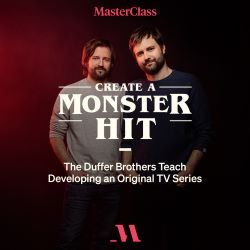Fink reflecting on the past through his newest release „IIUII“
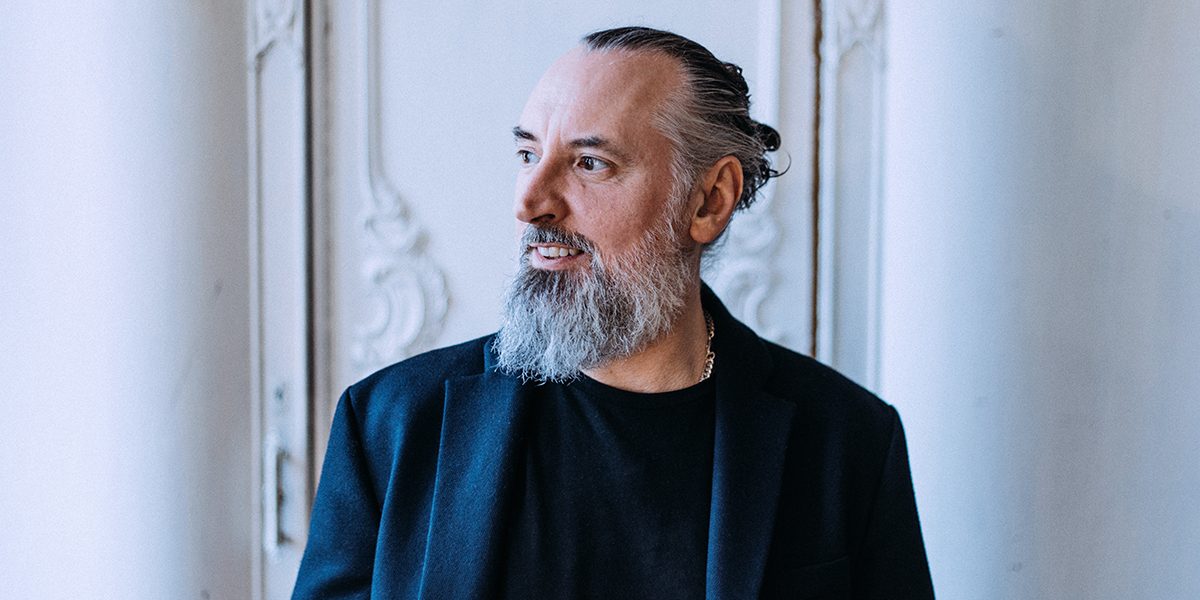
Fink, real name Fin Greenall, is an artist with more than ten albums under his belt. Finks shows are more often than not sold out and many of his songs are mood setters in some very famous TV shows. Fink is also one of those shows that carries with deep sounds through mediums size venues filled with a very niche crowd. We are Fink followers and we introduce his calm yet emotional, melodic stories to friends and family whenever an opportunity presents itself.
I cannot possibly dive into the wealth and depth of his background but there are a few things worth mentioning off the top: Greenall began his career as a DJ in mid-90s London which was “a thrilling place to be,” he produced for other people (including the young Amy Winehouse), gigged obsessively, and eventually founds his way to an acoustic guitar – something he will speak in-depth on below. That first ‘Fink 2.0’ album, Biscuits for Breakfast (2006), was a big hit, some tracks off it still occasionally sip out of restaurant windows and as emotional background music in movies. Many albums later we are now here, at IUII (It Isn’t Until It is), which came out in early July.
IUII (It Isn’t Until It is) is Fin Greenall’s a “re-imagining, a reminiscence and a unique take on the “best of” format” from his lengthy repertoire. The album also comes with a biography book. All of these songs have seen global stages performed by a full band, in full colour, so to say. Fink’s last tour, however, was an intimate performance that took him back to the early days and this new album is a reflection of that feeling.
In light of this new release we got our hands on an exclusive interview with Fin Greenall, so let’s dive in!
Images courtesy of the artist. Introduction written by Kateryna Topol, interview provided by the label.
How did you come up with the title for your new album “IIUII” and what does it mean?
”The album’s called It Isn’t Until It Is. It was an expression that came from my manager because we put this record together as a concept and we couldn’t come up with a name. Because it’s not a Best of and it’s not a Greatest Hits because I have not ever had a hit. So it’s more like a reflective, Memory Lane Moment, you know, and all the titles we came up with just sucked so much. And then my manager just said, “Hey, dude, really, the book’s about it isn’t until it is, it doesn’t exist and then it does exist” and so that seemed to fit it. And then we put it together in just letters. IIUII – it’s like the four key members of the band and you. It stands for me, I, and it stands for Guy and stands for Tim and Sumit. We’re in this together and then you’re in the middle of it all. You see the psychology involved and you see that’s beautiful isn’t it. Took me ages to think about that.“
IIUII is an acoustic rework of your album tracks. How did you choose which ones to redo?
”We asked the fans, what are your favorite cuts, what cuts would you like us to redo? And we kind of knew what the top five were going to be pretty much from the Spotify research pool. There were a few surprises in there, like “Maker” and some of these and “Pills in my Pocket” and some of the old ones…Taking the, if you like, the Best of tracks and then re-recording them live now, it was a way to reminisce and look back and have a nice think about it, but also to update the music with this voice, which is, you know, been around now a little bit… It’s just a beautiful way to open up a relationship with these old songs. And I hope that the audiences who like this stuff… we’re not trying to replace the old ones with better versions, not at all. It’s just like here’s an alternative just in case.“
How have the songs grown from the first time you recorded them and how have you grown?
”It was really because as a classic cliched artist when you listen to your old albums, which none of us ever do, and I certainly don’t, you can’t stand it because you’re like, oh my God, my voice is so young. Oh my God, we were so naive. Or you have these weird relationships with it. So it’s nice to go back in and re-record it and be like, okay the me now is doing the songs from back then. So I can sing better, I can play better, I’m more grounded and I’m more myself than I ever was back then. We’ve toured for 15 years, you must have learned something. Because the song can exist… the song itself can exist in so many different forms. There’s the version that you record back then, which was the best you could do and everything you wanted at that moment. But the song itself hasn’t actually changed at all in 20 years or 15 years or 10 years. Its lyrics and melody and structure and tempo and chords and… but you change. So how do you filter that information, like totally changes over the years. Yeah, you find moments in these songs where you can give more or take more or push more or pull more to put different emotions into different areas. And yeah I, I loved the process, you know, I really did.“
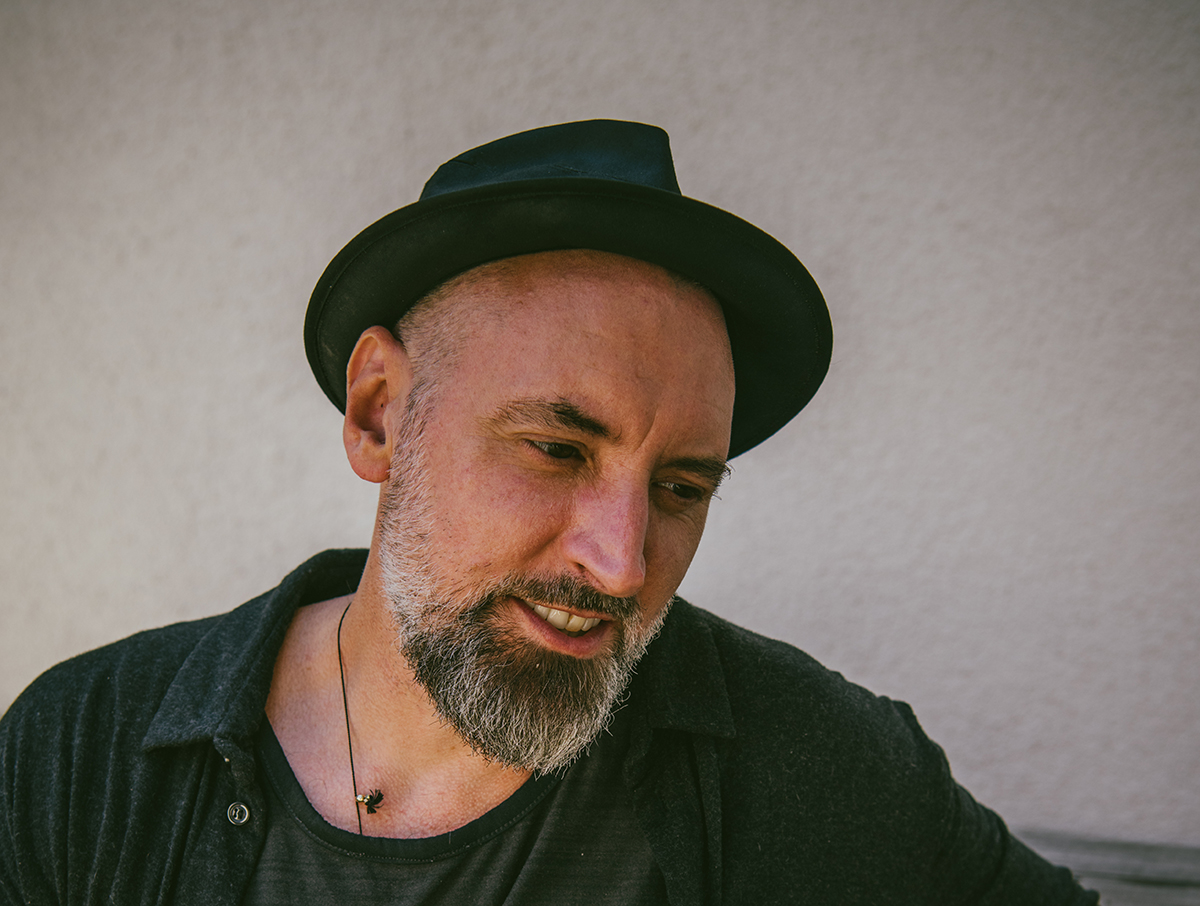
Let’s go back even further: how have you started making music?
”I was always into music, even as a kid, my dad’s a musician, there’s a lot of musicians in the house, lot of gigs that I went to, which I hated because I grew up in the 80s and the 80s was an amazing melting pot. I mean, all decades are in a way, but the 80s were just mind-boggling. You had like the birth of Electronic Dance Music. You had Hip Hop Culture. You had like the Punk element of modern music essentially sweeping away everybody else, like Punk did in the 70s, but in a new way where it’s like you can get involved, you know, it was incredible. And I felt that energy as a teenager. Being in Bristol as a teenager was amazing, you know, you had Massive Attack and Tricky and Portishead and this Bristol Sound, you had Soul II Soul on the radio, you had pirate radio, you had Rage, you had clubs. It was just like, this is so new. So I was really, really, really into music. I bought my first decks at 16, you know, and me and all my friends were into deejaying and we’d go clubbing all the time. And we loved it. But I never thought music was going to be like a career choice, like never even crossed my mind. I think I was more interested in fashion than music at that point or being a professional skateboarder at that point. You know, it just was like music didn’t factor in.”
How have you started making music more professionally?
”I went traveling and I traveled the world … and it completely changed my attitude to life. And then I went to university straight after and met a bunch of guys. And one of these guys, Lee Jones, he is still a really dear friend of mine, we pulled together our student loans and bought a computer and a synthesizer and made some music. And I realized, God it’s that easy. It’s actually not hard. The hard part is being ok sharing yourself. Even if you’re making Techno, you’re still saying, hey, I made this Techno track, what do you think? Opening yourself up for judgment is not for everybody, right? Especially when that judgment is like, actually, you suck and you should quit [laughs], which is often the reaction of my early material.
But somehow or other, we got signed and we put out a record and I was hooked … In the early days of Dance Music, you would make music in your bedroom. You’d cut it to a record, you’d sell it in the shops, you’d get your money, you put it under your bed, and then you do it again. And I thought, well, that’s pretty easy, I can do that. And then in the 90s, I started to work for the major record companies as a marketing guy and a plugger and a press dude and all these different things, while I was also a Ninja Tune guy. I learned about the real nuts and bolts of the music industry, agents and managers and, you know, live and all these old-school concepts. I didn’t know if I was going to be a professional musician or I was going to own a record company. Those were the two dreams. I was either gonna be Richard Branson or… Thom Yorke, let’s say, you know, one of those two guys, either is good, I’ll take either one of those is good.”
How did you go from Electronic Club Music to Live Instrument Music?
”So that was [the] second crossroads, seeing a bunch of gigs that really blew my mind. I could feel it in the air that live music was starting to become more interesting than club music in the late 90s. It was just that club music had done a bunch of turns: Drum’n’Bass, Deep House, Breaks. All these things had happened. And club music was a bit like, what now? And if you were a DJ in the late 90s, you were also thinking to yourself, what happens next? Am I just going to DJ at Fabric again next weekend? Is this the thing now? And then I saw Radiohead play OK Computer live, which was amazing. I didn’t know any of their music or anything about Indie Music at all when I saw that. But it was like, dude, I want to be a roadie on that tour because that was the best 90 minutes I’ve ever seen. I couldn’t believe it.
And then I saw System Of A Down, the Metal band play a tiny club in London, Astoria, and there was more energy and fire and focus in that room on a Wednesday night in the middle of a tour than I’ve ever seen anywhere before. I was like, holy shit, man, I’ve definitely missed…. clubbing’s great, clubbing’s cool. I get it, I like it. But dude, that was some crazy shit. I was getting emotionally touched by live music and I wasn’t getting emotionally moved by Dance Music. At the same time Ninja Tune Records said, ok, everyone on the label if you’re not live by next year, you’re all dropped. Because being a DJ is great, but it’s not selling records anymore. So we need you to be live. Thanks to Jay Swinscoe’s Cinematic Orchestra, who just gone live and prove to everybody, hey look, guys, look at me, I’m famous now. And it’s like, oh no, we’ve all got to do that now. All of us. Bonobo, Mr. Scruff, me, everybody.“
How did you get interested in doing singer/songwriter music?
”Thanks to the José González. Veneer was an amazing record, and it suddenly made being a singer-songwriter cool. And you think I hadn’t realized that before. I didn’t think, you know, I didn’t think David Gray was cool. And I didn’t think, you know, these other singer-songwriters that were around in the early noughties, I didn’t think they were cool. I thought I was cool. And then José put out this amazing Veneer record and I’m just kind of like, that is so… and Kings of Convenience as well. A great record. And I’m just kind of like, oh, my God, ‘Quiet is the New Loud’, you know, abso-fucking-lutely. So it kind of made it ok for me to explore it. Hearing José do his Veneer record, it really allowed me to go, aaaah I think that’s kind of cool. I want to be that guy. And then, you know, you had Bon Iver and you had, you know, lots of interesting guys putting out really cool music at that time. And then I was in.“
What are your tour plans with the “IIUII”-album?
”The tour that we’re going to do with this record is stripped right back to the original trio, just the three of us on stage doing it like we were doing it in 2006 and 2007, just the three of us. I got to say, it’s very exciting. I mean, it’s very naked and revealing on stage is just three of you. But, um, yeah, it’s cool to think about it like that. So, I mean, it’s kind of like therapy for us because it’s like the first 10 years of Fink was such a ride, we didn’t really get a chance to even think about it at the time. To go back and do it on this record to actually revisit the first ten years, 2005 to 2015 has been an opportunity for us to process those years.”
Are there any plans for a new record?
“I think there’ll be a new Fink record in ’23, I’m pretty sure about that. I think I’m going to start writing it in maybe November and do November to January, lock myself in and do a new Fink record. But what it is going to be about and what it’s going to sound like? God, I got no idea.“


